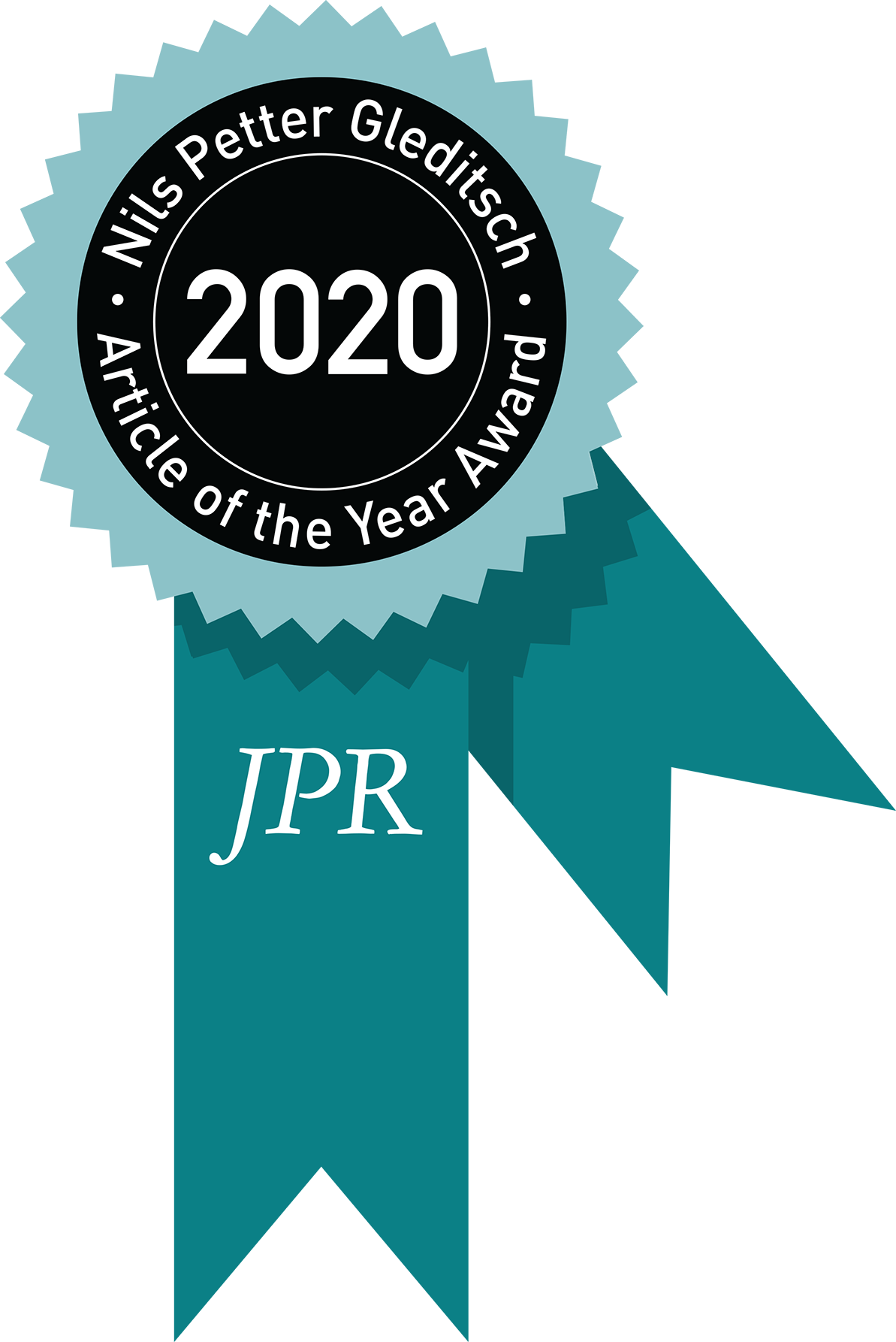
A jury consisting of Anja Shortland (King's College London), Zeynep Taydas (Clemson University) and Charles Butcher (Norwegian University of Science and Technology) have awarded this year's Nils Petter Gleditsch Article of the Year to Jana Krause for her article titled "Restrained or constrained? Elections, communal conflicts, and variation in sexual violence".
All articles published in JPR's 57th volume were eligible for the award. Articles were judged on their theoretical contribution, methodological sophistication and substantive relevance. As ever, the jury was faced with the tricky task of adjudicating between many outstanding articles.
According to the jury, the prize-winning article addresses an important and overlooked research question and makes an impressive contribution to the communal conflict literature by systematically examining the variation in sexual violence across cases of election violence. To understand the conditions under which sexual violence takes place, the author draws on theories in civil war literature and comparatively analyses two prominent cases of post-election violence, Kenya (2007/8) and Nigeria (2008). Krause argues that the nature of communal conflict triggered by electoral mobilization explains the divergent patterns of sexual violence in which both men and women may be targeted. Drawing on extensive fieldwork in both countries, human rights reporting and secondary resources, the author shows that communal conflicts that polarize a majority group against a minority on the local level are more likely to experience widespread sexual violence than communal conflicts that pit two similarly strong groups against each other. While post-election violence in Nigeria generated intense dyadic clashes and violent battles between similarly strong groups, sexual violence was limited due to the characteristics of the fighting and presence of situational constraints, such as the risk of exposure and fear of imminent attack by the opposing side. By contrast, in Kenya's case, one-sided nature of electoral violence and the absence of situational constraints made widespread rape and other types of sexual violence possible during post- election clashes. This article's plausibility probe pushes researchers in new directions by showing that fatal and sexual violence do not necessarily co-occur and the impor- tance of territorial dominance or control for this type of atrocity.
The article studies an important question in the academic and policy worlds, offers a strong theory, provides convincing qualitative evidence in support of an interesting proposition and advances our understanding of post-election dynamics and sexual violence. The jury hopes that Krause's article will raise awareness and stimulate further research in this area.
The award is USD 1,000.
Honourable mention goes to the runners-up:
Matthew Nanes (2020) Police Integration and support for anti-government violence in divided societies: Evidence from Iraq. JPR 57(2): 329–343.
Cyanne E Loyle and Christian Davenport (2020) Some left to tell the tale: Finding perpetrators and understanding violence in Rwanda. JPR 57(4): 507–520.






